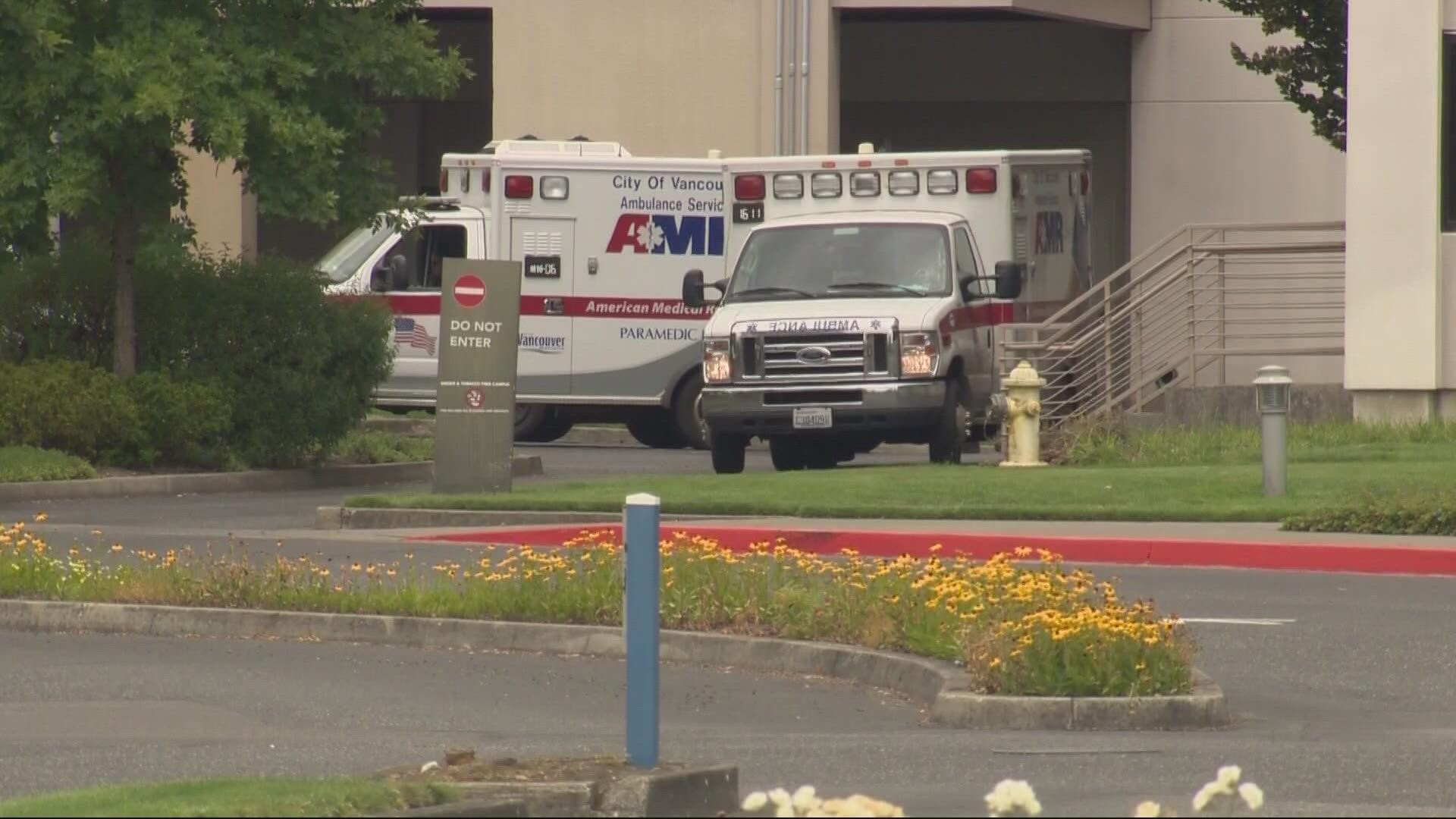PORTLAND, Oregon — Healthcare leaders warn that capacity issues in Oregon hospitals continue to worsen, as hospitals grapple with understaffing and other challenges even long after the prior patient surges brought on by COVID-19.
“The [healthcare] system is really suffering from dramatic aftershocks from the pandemic,” said Becky Hultberg, president of the Oregon Association of Hospitals and Health Systems. “It’s just backed up right now, it is slowly grinding to a halt.”
As of Friday, Hultberg said 506 patients were essentially "stuck" in Oregon hospital beds, waiting for space to open up in post-care facilities.
“That is one of the things that is creating this capacity crisis,” said Hultberg. “We have people boarding in the emergency departments, people waiting for transfers, waiting for a higher level of care and that bed is not available for them."
RELATED: 'This is unprecedented': Many Pacific Northwest hospitals at capacity as they struggle with staffing
In the Portland metro area, 21 ICU beds (6%) were available on Friday, along with 50 non-ICU beds (3%).
Ambulance services are also feeling the impact. American Medical Response told KGW that their first responders are dealing with longer wait times for patient transfers. In a statement, an AMR spokesperson said in part:
“Ambulance crews continue providing high-quality patient care either in the ambulance or in the receiving areas of the emergency department. However, ambulances held at local emergency rooms with patients cannot respond to other 911 calls. We urge the public to utilize the hospitals and 911 system only when it is a true emergency or when directed by their healthcare provider."
Some fire departments also provide ambulance transport services, including Tualatin Valley Fire & Rescue.
“There have been times over the last year when hospitals in the Portland metro area weren't able to accept patients into emergency departments,” said Cassandra Ulven, public affairs chief for Tualatin Valley Fire & Rescue. “So TVF&R has had to transport patients as far south as Eugene."
Hultberg said they're working with the Oregon Heath Authority and the Governor’s office on short-term solutions to help free up hospital capacity. Hultberg noted that earlier in the pandemic, the state provided incentive payments to adult foster homes to take in patients, and many hospitals formed “Decompression Units” — nursing homes contracted to take patients ready to be discharged.
“Everything's on the table because we recognize that right now is actually a slow time for hospitals,” said Hultberg. “We have to address the capacity problem before we get to the fall when we typically see higher numbers because of the seasonal flu.”

